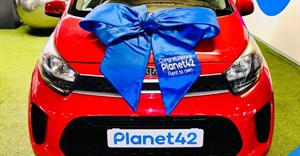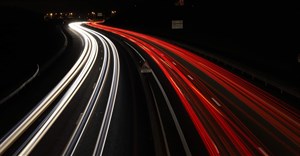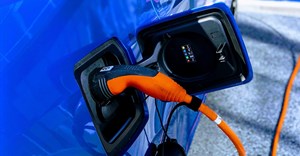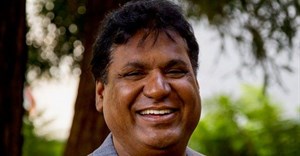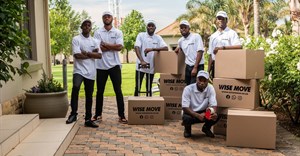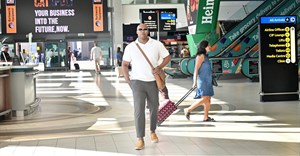Trending
Elections 2024
#StartupStory: Planet42 aims to solve 'transport inequality'
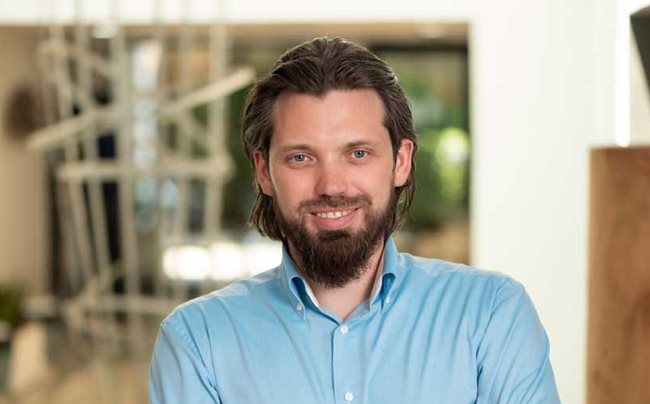
I chat to Eerik Oja, co-founder and CEO of Planet42, to find out more.
Can you tell us a bit about Planet42?
Planet42 is fighting transport inequality by putting cars in the hands of people unfairly ignored by banks. In South Africa, as well as many other markets, banks exclusively focus on high-earning customers with spotless credit records, leaving a majority of the population out in the cold.
Our socially inclusive car subscription product solves this issue.The inequality in access to personal mobility coupled with dysfunctional public transport is making it harder for people to access new employment and educational opportunities. So they remain financially and socially excluded. By giving these people their own second-hand vehicle in exchange for monthly subscription payments, we break this cycle. We are able to do this thanks to our innovative and inclusive car subscription product, plus some smart tech running in the background that helps us mitigate the risk.
When, how and why did you get started?
Before launching Planet42, with my co-founder Marten Orgna in 2017, I was working in the vehicle finance industry in Estonia. I felt like many of my skills weren’t being put to the best possible use. I wanted a challenge, and something with more meaning where I could make a real impact. In Europe, most people use vehicle financing to just buy a nicer car than the one they already have, whereas in South Africa we can give cars to people who otherwise would not have them.
Having a car is a game changer here, helping people to access new opportunities and spend less time moving from A to B.At the time, my friend Marten was living and working in Africa, and he really wanted to start his own venture. So he convinced me to move to South Africa and start Planet42. We didn’t have much in the way of savings at the time, so we raised money from angel investors to build up the basic IT system and buy the first 100 cars.
What is the core function of Planet42?
Our core function is to provide fair, flexible, and safe mobility to people unfairly ignored by banks and other vehicle finance companies.
What services are offered?
Our core product is a socially inclusive car subscription. We buy second-hand cars from a network of motor dealers, then provide these cars to our customers on a subscription basis.
It works like this: a customer goes to a car dealership and chooses a car. The staff at the dealership submits an application to Planet42 on behalf of the customer. Our automated scoring algorithm assesses the customer in seconds and generates a proposal. If the customer accepts, we verify their bank statements and ID, and then a rent-to-buy car subscription contract is signed. We buy the cars from the dealer, then rent them to the customers. We are also able to pre-approve customers before they even choose a car if they apply online.
The subscription the customer pays covers the rental fee, plus comprehensive and mechanical insurance and GPS tracking. The customer can buy out the car at any time, and the buyout cost goes down every month. What makes our car subscription service inclusive is that we try to make it open to as many customers as possible.
We use our own scoring algorithm rather than credit ratings used by the banks. And we offer payment relief tools to assist customers during periods of economic hardship, for example, temporarily losing income during the Covid-19 pandemic.
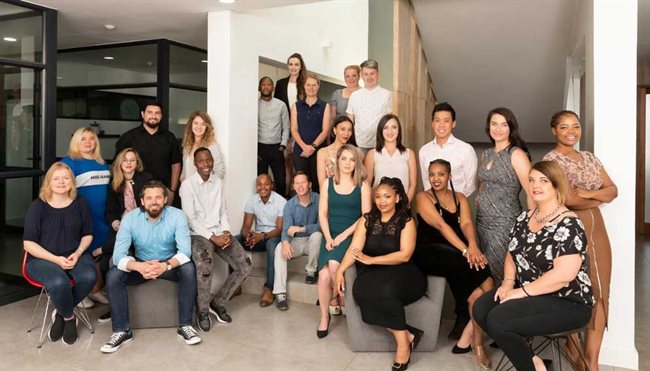
What are some of the obstacles you’ve had to overcome since starting out?
It wasn’t so much an obstacle, but one lesson we learned in the early days is that you can be too digital. We assumed the more digital our product was, the better. So we spent the first nine months getting our core IT system in place, and making the whole process digital. With our system, we don’t need to physically meet the customer or see the car.
Our application form is digital too, and this turned out to be a problem. The dealers and customers were used to filling in four-page application forms for the banks. Our form had 6 fields and was all online. Our application rate was actually suffering. When we printed out application form templates and dropped them off at dealerships, we saw an immediate increase in applications. We still do use online applications of course.
Of course, the challenges presented by Covid-19 are also something we have had to adapt to. Our team in South Africa has responded to these challenges with ingenuity and resolve.
Our approach has been human. We decided to pardon certain payments from customers given the circumstances, and this has paid off. Most of our customers have now found solid ground and were able to start paying again.So despite the pandemic, we have been able to continue growing and investing in the economy here by buying cars for our customers.
What advice would you give to other aspiring entrepreneurs?
I think there are a lot of misperceptions about what it means to be an entrepreneur. We imagine a genius whose job is to come up with brilliant ideas that no one else could have come up with. In my opinion, the reality is quite different.
First of all, I would say that your ideas are worthless. What I mean by that is that it’s a lot more important to be able to materialise an OK idea than to come up with a genius one. Execution is everything.
Even a brilliant idea won’t go anywhere without the right execution.At Planet42 we didn’t come up with a unique idea. But what we have done is assemble a great team, and we execute really well. We keep experimenting, learning and improving, and that’s what gives us an advantage.
Planet42 is definitely innovative. In your opinion, how important is innovation in today’s business landscape?
Innovation is absolutely crucial in business. It creates new ways to look at a problem, or even solves problems that other solutions can’t - and this is how value is created.
In terms of personal mobility, imagine a customer who has been using a car for a few months, but then loses their job. They return the car to us. Then, a few months later they get a new job and can prove they have income again. They can now apply to us to get another car. With financing from a bank, this wouldn’t be possible. So our solution offers flexibility and a new way to solve the problem of mobility. This is the power of innovation. Before we arrived in South Africa, no one here was offering car subscription services. So we have introduced a new way to look at an existing problem.
And to speak more generally about the business landscape, small innovative startups are really important. They can do things that incumbents with legacy systems can’t. Banks tend to be a great example for this. They are constrained by regulations, offer a hundred different services, and rely on legacy systems for their technology. This is not their fault. We’re talking about some of the oldest and biggest institutions around.
But it does mean innovative startups who are laser-focused on one specific product and are free of legacy systems can offer new or better products. In our case, banks in South Africa (or Mexico, Brazil and Indonesia for that matter) won’t offer you finance for a vehicle even if you have a decent, stable income. But we can.
What has been your proudest achievement thus far?
I am most proud of the impact Planet42 makes, and the fact that we offer a simple and flexible service that gives ordinary people more freedom.
We’ve had customers that lost everything and wouldn’t afford to get financing for a car. We got them back on wheels. We also have people who build their credit by subscribing to us who then ‘graduate’ to buying a car with a bank loan.
The strongest example of the kind of impact we’re achieving is a nurse who was spending almost a third of her salary on Uber rides to and from work. Now she has a safer, more affordable way to commute. For us, it’s unacceptable that vital professionals like nurses and teachers, who are on good salaries, can’t afford a car. And I’m proud that we are part of the solution to this problem.
The Planet42 team plays a huge role here going the extra mile to help clients even if this is not formally in their job descriptions. They are demonstrating a real human touch.What would you like to see changed in the South African startup landscape?
I would love to see startups taken more seriously and given more respect. As I already mentioned, startups play a really important role in the business landscape because they are agile and disruptive.
At the moment, it feels like corporate businesses are favoured over startups. Perhaps this attitude is partially connected to a fear of failures.There seems to be a bit of a stigma attached to failing with your first startup.It’s understood that an entrepreneur might fail two or three times before creating a successful business. It’s just the nature of startup life.
What do you believe are the traits an entrepreneur needs in order to succeed?
Alongside what I mentioned earlier about prioritising the execution, there are a couple of other important traits I think successful entrepreneurs need.
The first is the ability to see when something is good enough, even if it’s not perfect. You can waste so much time and energy chasing perfection when you already have something that can work well. Take our area of business. Theoretically, it is possible to get a portfolio of customers who are 100% up to date on their payments. But trying to achieve this in reality would take so much effort that you have to exclude a huge part of the population - like the banks do. Achieve a level that’s good enough, then put the rest of your energy into something that will have a bigger impact.
The second characteristic I think entrepreneurs should have is radical honesty. It is difficult to do this - telling people what they want to hear is always easier in the short term. But in the end, honesty spurs people on and leads to a more rewarding experience for everyone.
Where would you like to see Planet42 in the next 5 years?
So far we have issued nearly 3,000 car subscriptions, and we have signed up 400 dealerships. We have set ourselves the target of 100,000 cars in South Africa by 2024. We have the financing in place to buy more cars, so we think this is doable.
We also want to bring our solution to other markets where mobility is a problem and where large proportions of the population are financially excluded. We are planning to expand to a new market in Latin America this year.
So to sum up, we hope to have a positive impact on the lives of millions of people around the world over the next 5 years, and especially in South Africa, our home market and the place where it all started.












